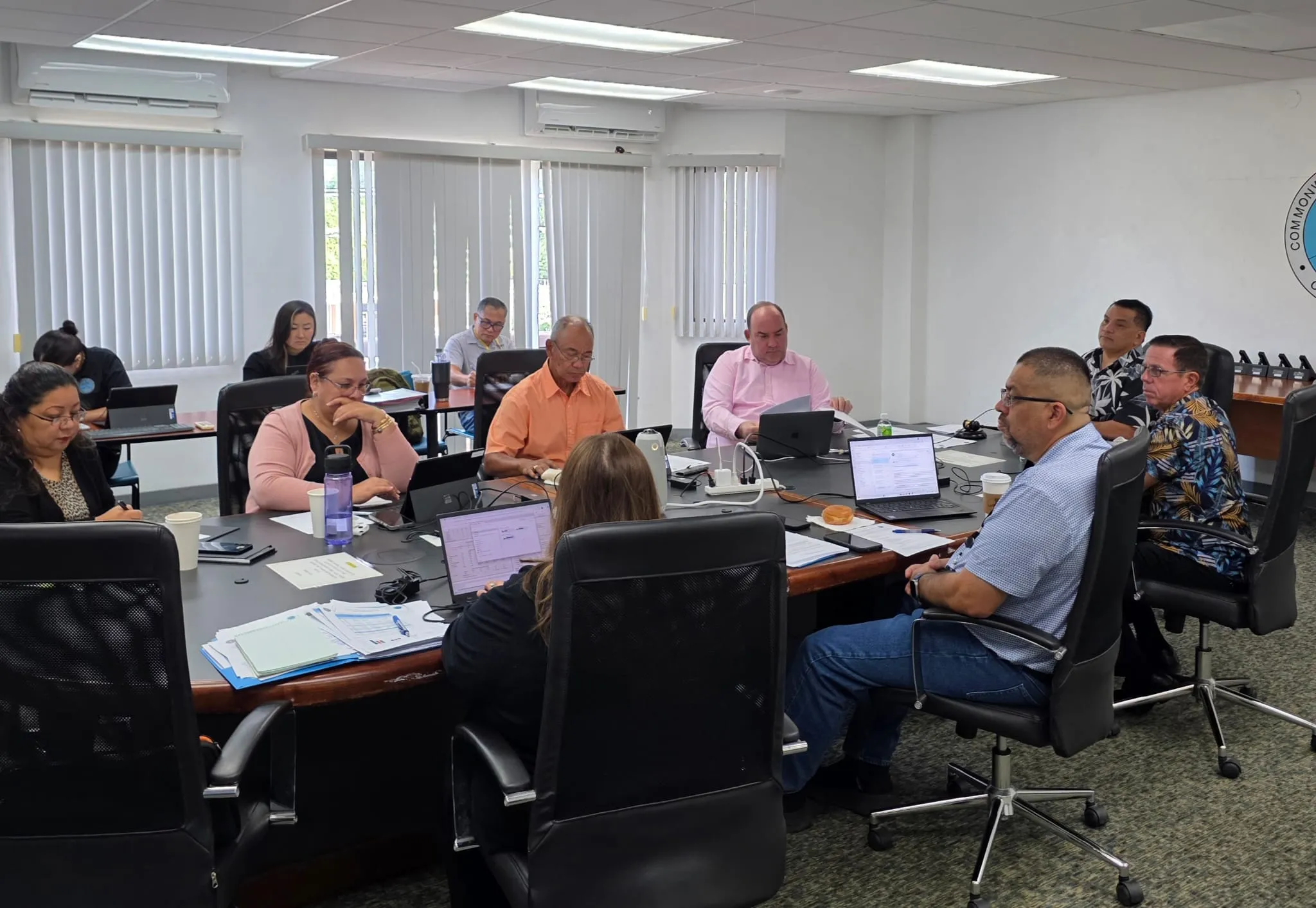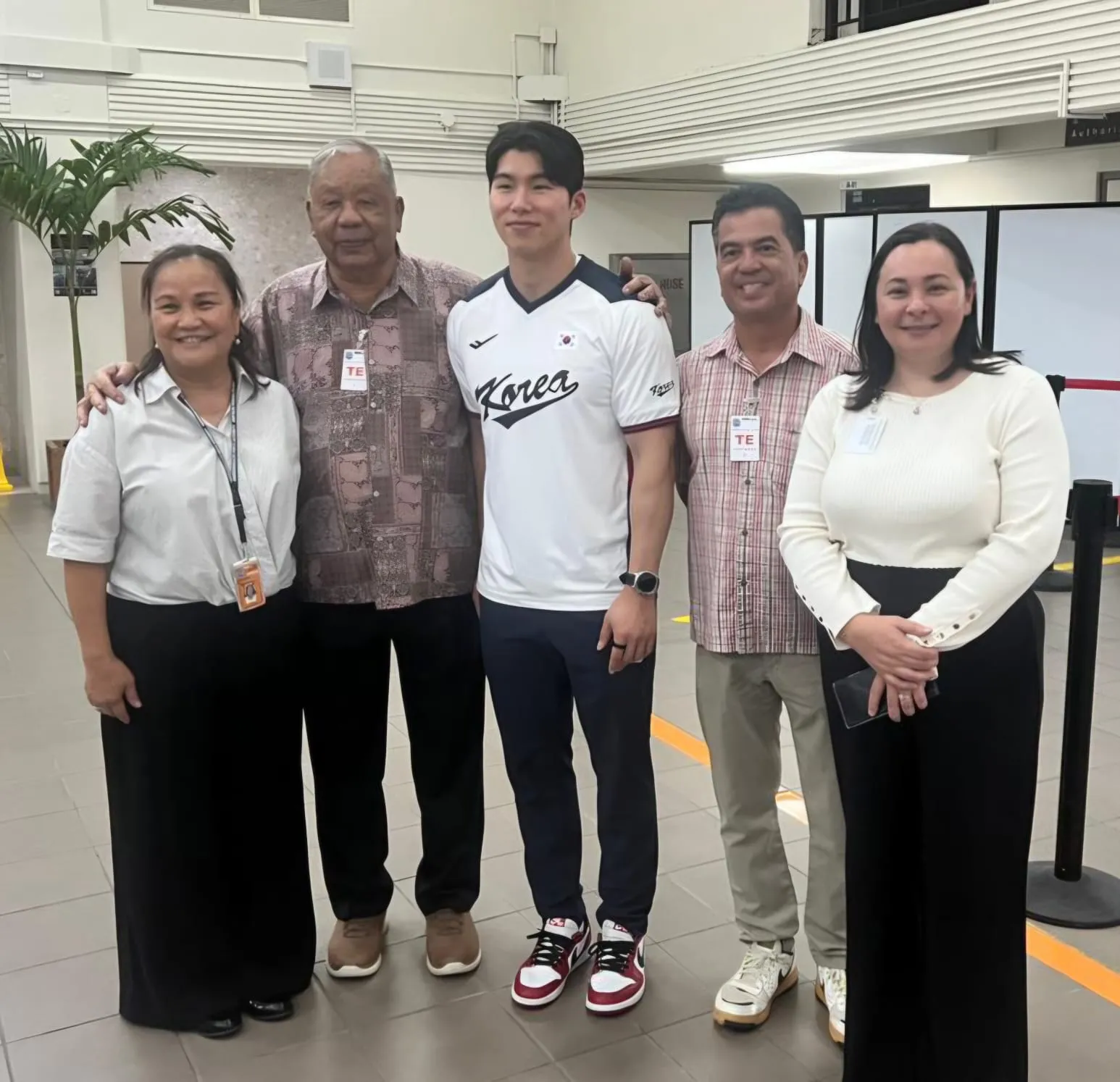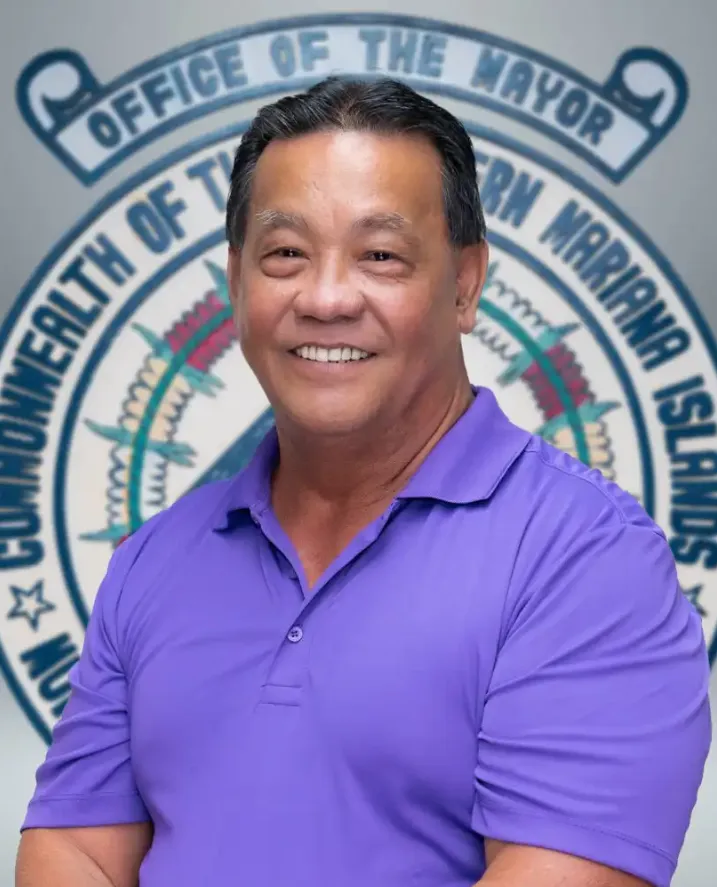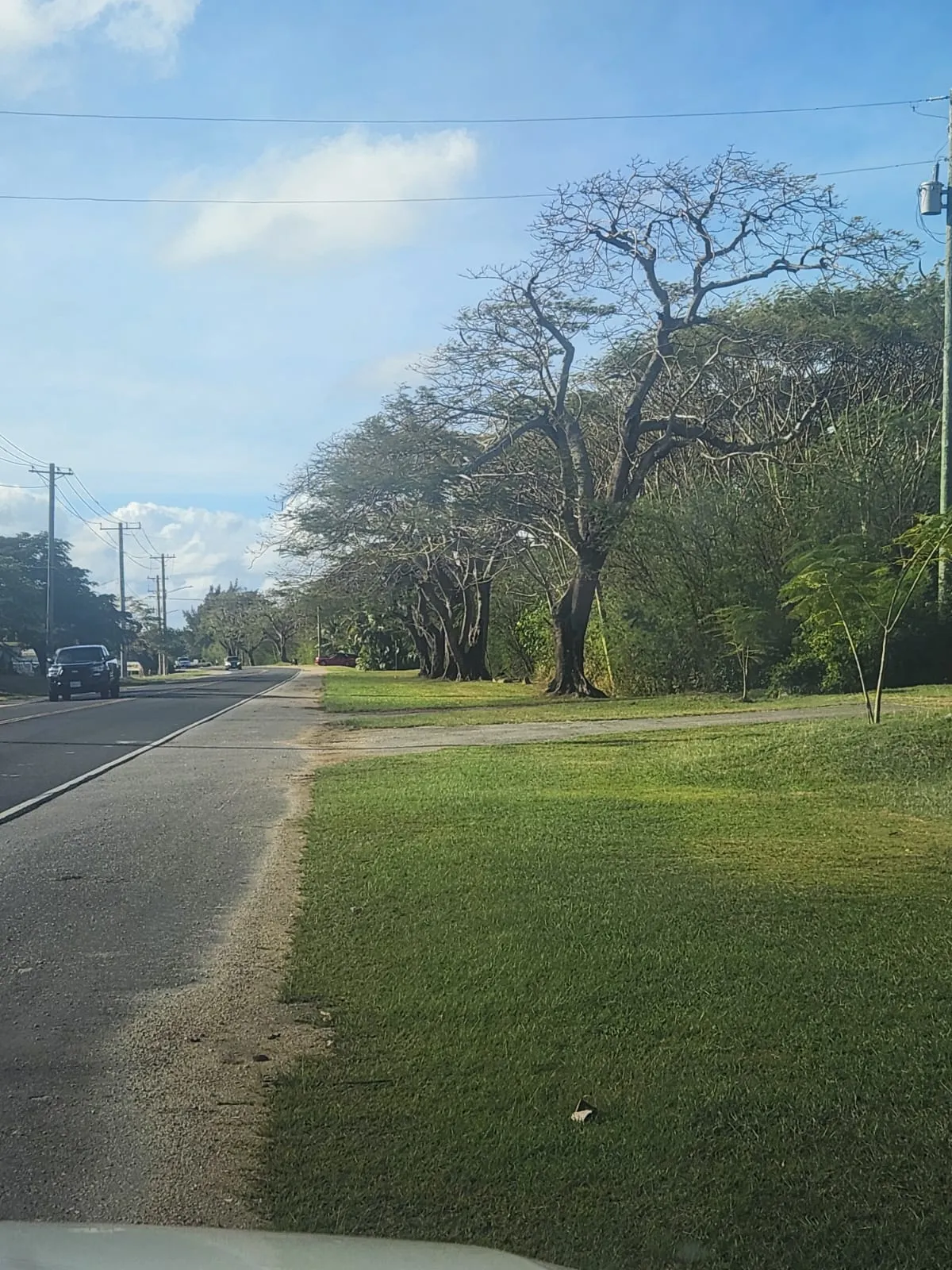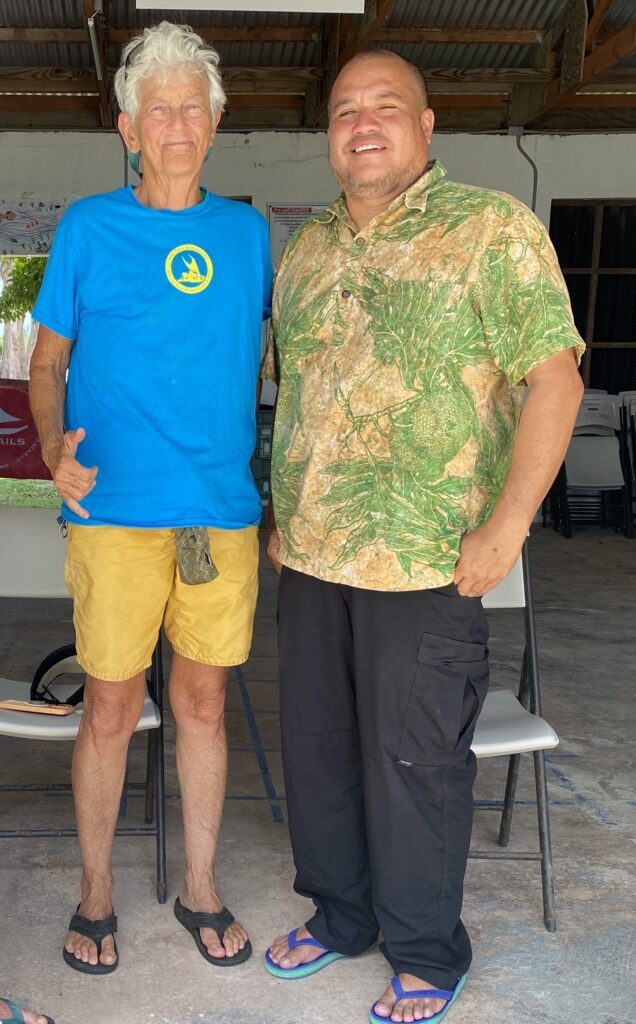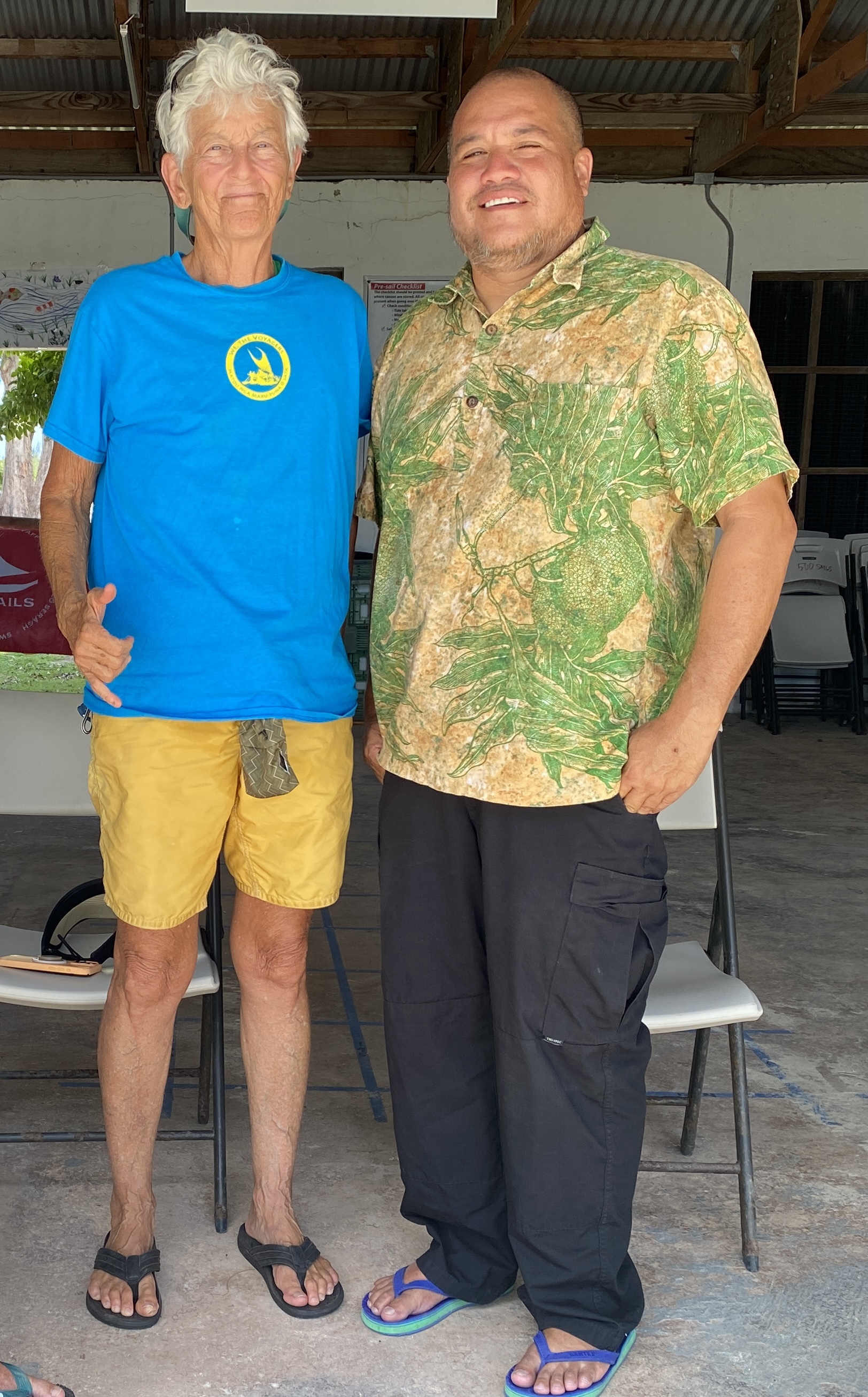
Mimi George, left, poses for a photo with 500 Sails Executive Director Milton Coleman at the 500 Sails Guma Sakman. George was recently on Saipan to begin the collaboration process with Master Navigator Mario Benito to construct a canoe and canoe house on Benito’s home island of Polowat.
MIMI George, vice president of the Pacific Traditions Society, visited Saipan on Aug. 18 to meet with Master Navigator Mario Benito and explore the possibility of building a traditional canoe house and ancestral Carolinian canoe on Polowat, Benito’s home island in the Central Carolines.
On Saipan, Benito teaches sailing and maintains the traditionally designed vessel Mikaela with 500 Sails.
George, a cultural anthropologist and sailor, has contributed to documenting voyaging traditions in New Ireland Province, Papua New Guinea; Taumako, Solomon Islands; and beyond. She first met Benito while he was giving presentations in Canada during the IMPAC5 Conference, as well as the Te Ara Vaka Moana Conference in Berlin in 2023.
Next month, George, Benito, and traditional seafarers from Lau, Fiji; Papua New Guinea; the Solomon Islands; and elsewhere will gather in Taumako for the ceremonial opening of the Taumako Traditional Culture and Voyaging School, known as Hangia Anu Manga. A canoe has already been completed there in time for the school’s launch.
George told Variety that construction of the Taumako school and canoe was funded by a grant from the Gerda Henkel Stiftung Foundation. She plans to apply again to fund a canoe and canoe house in Polowat, where Benito — who also holds a chiefly title — would help lead construction.
The Pacific Traditions Society also hopes to secure support for similar projects in Lau, Fiji, to help revive voyaging schools there.
“We’re looking for support so that each of these voyaging schools can be revived to maintainable, sustainable levels,” George said. “They can be charitable organizations if they want to, but they also need to make a little money to sustain themselves — maintain the equipment, buy supplies, pay school fees for children. These are the kinds of things that are really hard for people in these islands.”
Across the Pacific, George added, practitioners of ancestral voyaging knowledge have also sought funds for recording equipment and training to document oral traditions.
“Since the ’90s, they’ve all been requesting video cameras because they want to document the process of learning from elders before they pass away,” she said. “They want their own young people to do the documentation — not outsiders who don’t know the language, what to ask, or how to understand the answers.”
She said support could also be directed toward providing internet access so that voyagers in remote areas can better communicate with each other to plan voyages and stay connected during travel.
Before colonization, George said, voyaging traditions were central to survival in the Pacific.
“No island has everything it needs to be sustainable,” she said. “There have to be networks. There are hundreds, maybe thousands, of traditional networks that, if reestablished, will help everyone deal with climate change, preserve biodiversity, and strengthen knowledge of the ocean.”
George said she is encouraged by the revival of voyaging traditions across Polynesia, Micronesia, and Melanesia.
“To know what’s in the future, you have to understand the past,” she said. “The ancient knowledge of the ocean, of reefs and islands as living systems — modern science knows very little compared to people who have lived there for thousands of years. Science and indigenous knowledge can complement each other, but cultural knowledge needs to be taught now to young people. That’s what’s really urgent.”


